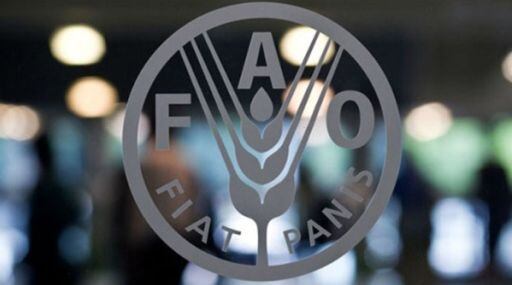
The invasion of Ukraine by Russia threatens to “seriously aggravate food insecurity” around the world due to the role of both countries as giant food exporters. cereal and fertilizersmaking products more expensive, warned the Food and Agriculture Organization of the UN (FAO).
“Disruptions in the supply chain and logistics of Ukrainian and Russian grain and oilseed production, as well as restrictions on Russian exports, will have significant repercussions for food security,” reads a report, signed by the director of the FAO, the Chinese Qu Dongyu.
The fear of this United Nations body derives from the fact that both Ukraine and Russia are heavyweights in the export of cereals – they accumulate a third of exports – and also, but not least, of the fertilizers used in the fields of half the world.
Two agricultural giants
To show a button: Russia is the largest seller of wheat on the planet, while Ukraine is the fifth, and both provide 19% of the supply of barley, 14% of wheat and 4% of corn on the planet, and sell the 52% of sunflower oil.
The “disturbances” of the conflict will surely impact the global market due to the “dependence” on these two countries at war.
Just think that some fifty states get 30% “or more” of their wheat supply from Russia and Ukraine. Many are poor or developing, in North Africa, Asia or the Middle East, but others in Europe, richer, depend on their fertilizers.
Prices on the rise
All these factors will make food more expensive, as is already happening, whose prices began the upward path from the second half of 2020 and reached their “historic maximum level” last February due to high demand, the costs of inputs and transport and the “disturbances” in the ports of the planet.
Throughout 2021, wheat and barley were 31% more expensive and rapeseed and sunflower oils, 60%.
On the other hand, the price of urea, an essential nitrogen fertilizer, increased by 300% in the last twelve months, due to the high demand and the volatility of the cost of natural gas.
Other “fundamental” risks
In this context, and three months before the June harvest, the FAO expressed its doubts that Ukrainian farmers will be able to harvest and sell their products due to “the massive displacements” of a population fleeing from the bombs of the Vladimir Putin regime.
Ukrainian ports on the Black Sea have been closed, besieged by Russian troops, and freight shipping by rail would be “impossible” in the absence of a large-scale, functional rail network.
Russian ports, by contrast, remain open, but Western financial sanctions “have led to a significant depreciation that, if sustained, could undermine productivity and growth and ultimately drive up the costs of agricultural production even further.” ”.
On the other hand, the cereal could transit by ships through the Bosphorus, although it is a dangerous war zone, which implies an increase in insurance premiums and, therefore, a new plus to the price of the commodity.
The war has also made energy more expensive and Russia is one of the world’s leading players in this sector, accounting for 18% of world coal exports, 11% oil and 10% gas.
Agriculture, warns the FAO, “requires energy through the use of fuel, gas and electricity, as well as fertilizers, pesticides and lubricants” and “the manufacture of feed and its ingredients also requires energy”.
“The current conflict has caused an increase in prices, with negative consequences for the primary sector,” he says.
Find alternative providers
Nobody knows how long the war will last or its final repercussions and, for that reason, the FAO advised the countries of the world “to look for new and more diverse suppliers of food”.
“Countries that depend on food imports from the Russian Federation and Ukraine should look for alternative suppliers to absorb the effects. They should also take advantage of the current food reserves and diversify their internal production to guarantee the population’s access to a healthy diet”, she placed.
Especially noteworthy is the case of sunflower oil, whose scenario is “uncertain” in its main importers, India, the European Union, China, Iran and Turkey.
The agency also called for “doing everything possible” to “keep the world trade in food and fertilizers open”, support the most vulnerable people and assess the repercussions on the global primary sector of each measure taken in the crisis.
Source: Gestion
Ricardo is a renowned author and journalist, known for his exceptional writing on top-news stories. He currently works as a writer at the 247 News Agency, where he is known for his ability to deliver breaking news and insightful analysis on the most pressing issues of the day.












